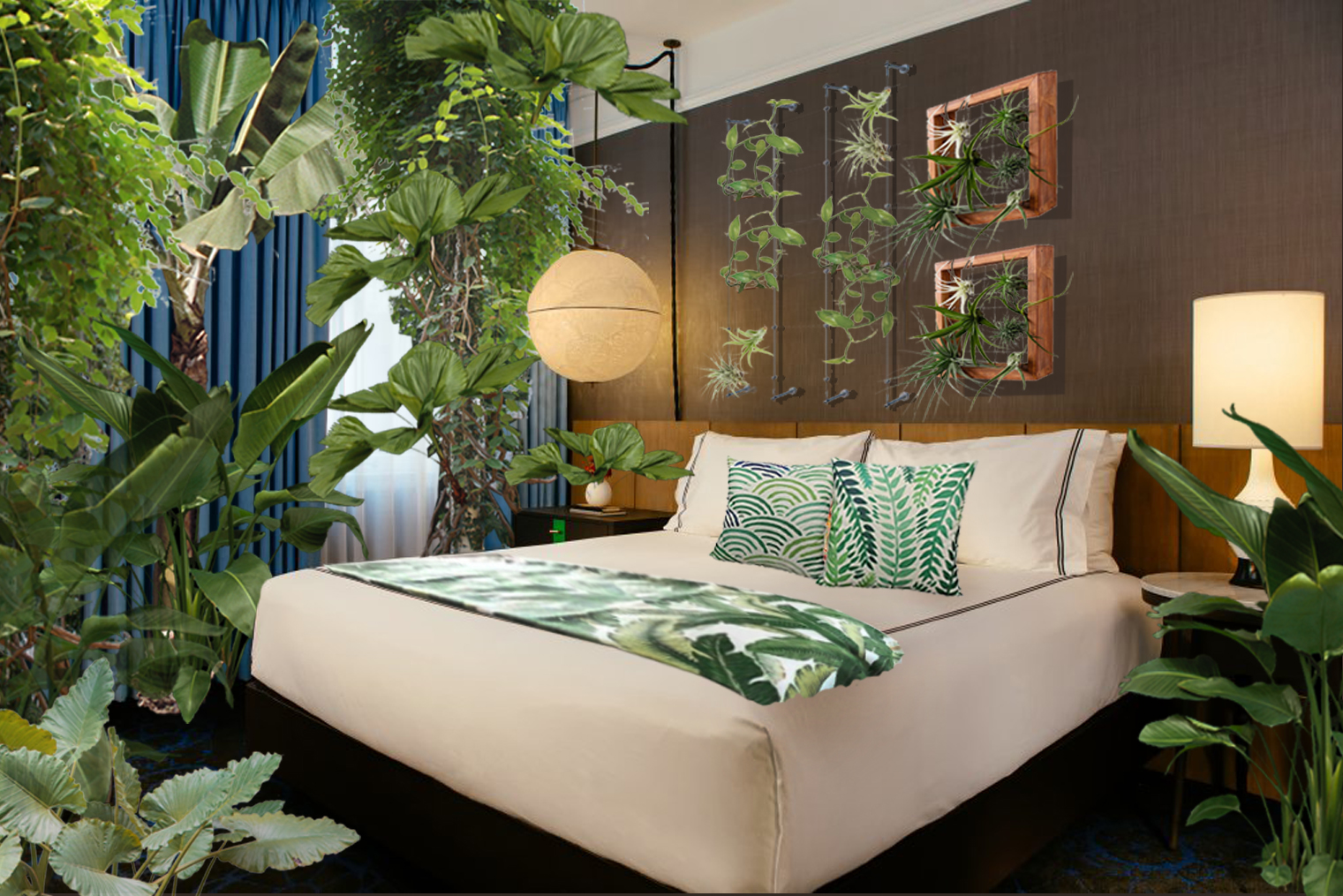Chicago's hospitality industry seems to get more crowded by the year — and to gain a leg up on the competition, one hotel is listening to recommendations from its prospective millennial clientele.
Their suggestion? More houseplants.
From October 18 to 20, based on market research conducted by Orbitz, the Kimpton Gray (122 W. Monroe St.) will adorn ten hotel rooms with flora from around the planet. Each suite will be modeled after a different room at the Garfield Park Conservatory, which is assisting the Kimpton with design and planning. And each theme will almost certainly earn its weight in the coveted currency of shareable social media content by plugged-in guests.
The idea for a plant-themed pop-up came from a survey Orbitz conducted earlier this year among 1,028 travelers ages 18 to 44.
“People are really looking to have their hotel rooms feel homier,” says Carey Malloy, director of brand marketing for Orbitz. “Plants bubbled to the top," she theorizes, "because as people are traveling more, they’re spending more time in their hotel rooms to relax and recharge.”
The second most requested amenity in the survey was proximity to public transportation, Malloy adds.
Among the themes available at the Kimpton's pop-up: a fern room full of lush, leafy plants, a desert room with cacti and agave, and a tropical palm room modeled after the largest space at the Garfield Conservatory.
Going big on green has benefits beyond social media virality, says Garfield Park Conservatory CEO and President Jennifer Van Valkenburg.
“Our reaction was, of course you want more plants in your room — [to be] connected to nature at all times, especially in a city, or [while you're] away from home,” says Van Valkenburg. “We were very excited about sharing the beauty and restorative power of plants.”
The Orbitz team even has a name for the phenomenon of young tourists seeking out exotic nature and plants: "floratourism."
The houseplant craze has become a staple of shelter magazines and interior design Instagram accounts in recent years. But will it catch on in hotels?
“I can’t predict industry trends," says Van Valkenburh. "But if [hotel owners] are listening, I would encourage it. Being close to nature is important to everyone's health and well being."
On a broader scale, moving dozens of large, complex plants permanently into hotel rooms would require added staff and maintenance costs, says Gray Hotel marketing lead Dina Fenili. But if the data say that it's what guests want — and if it ultimately leads to a bump in hotel bookings — we can expect to see more of it in the future.
“We’ve already raised our hand if [Orbitz and the Conservatory] want to do another round,” Fenili says. “Live trees and natural greens [have] a very fresh feel, and it’s clear that people want their creature comforts when they travel.”



